Impossible choices: Bolivia’s coronavirus conundrum
Based on reporting by Morelia Eróstegui Navia in La Paz
Coronavirus seems to feed voraciously on vulnerabilities. Fragile health, immune systems weakened by aggressive medical treatments, old age or poor nutrition, as well as crowded and unsanitary living conditions all contribute to making the virus more lethal.
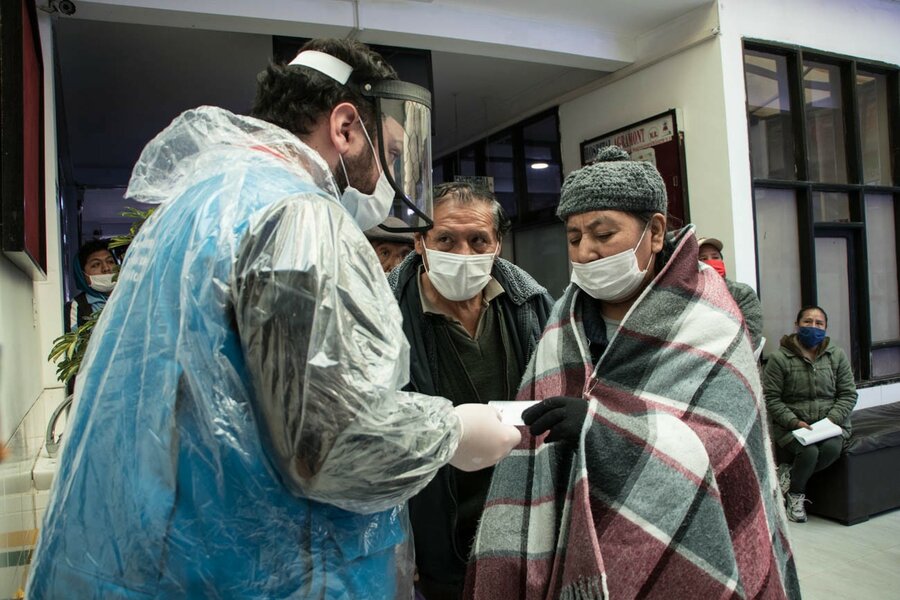
When more of these factors come together, life in the time of coronavirus can become a titanic struggle.
Juan Carlos Casas lives in El Alto, Bolivia's second-largest city and part of the metropolitan area of capital La Paz. A kidney patient, he has been undergoing three weekly dialysis sessions for the past 15 years. "A good diet is very important [for people with kidney failure] — we cannot eat what everyone else eats," he explains. As the country has been in full lockdown since 21 March, this has become all but impossible. "We've had to ration food and haven't been able to afford the specialized foods we need," he says. "Even those of us who had jobs, or family members with jobs who supported us, haven't been able to work."
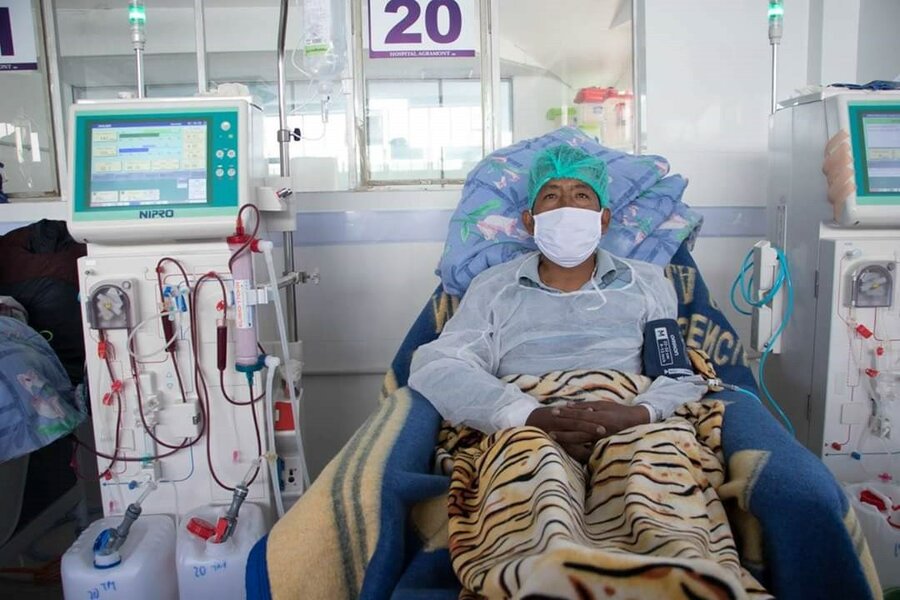
Approximately 60 percent of Bolivia's population are employed in the informal sector — as bus drivers cleaners, street vendors — and rely on daily earnings. Unable to leave their homes due to COVID-related restrictions, people have been losing their only source of income. Those with chronic illness or undergoing treatment are often faced with the impossible choice between buying food and paying for medicines and transport to the hospitals. Many just end up dropping out of often life-saving treatment.
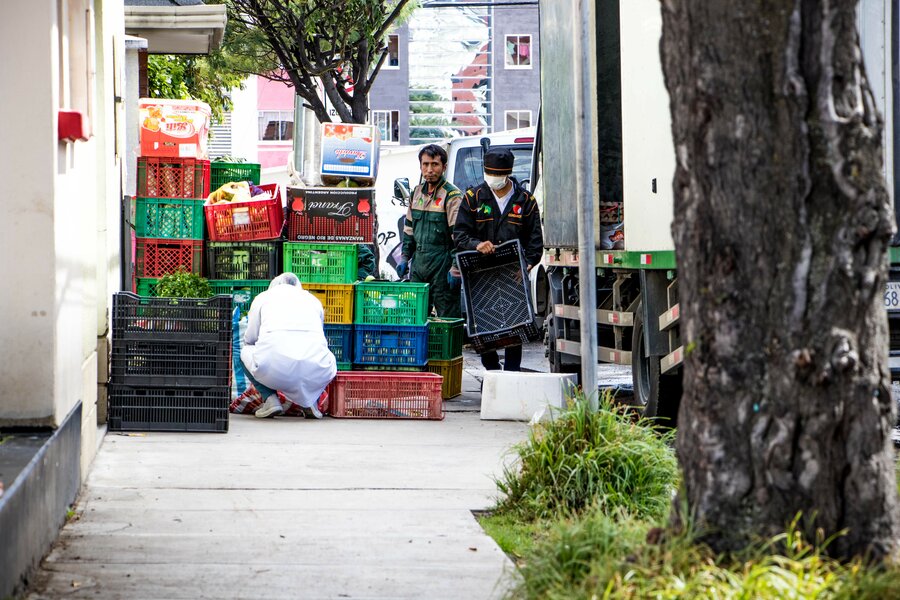
To mitigate the economic impact of COVID response measures, in March the World Food Programme (WFP) started distributing electronic cash cards to 1,500 families in El Alto and La Paz. The cards come with an initial US$123 and will be recharged periodically, conditional on attending nutrition training via WhatsApp and other channels, depending on the needs of each group.
"This help was really needed," says Vilma, mother of 5-year-old Donovan Takesi. Takesi is the name of an Andean trail near La Paz — the little boy's life has also been an uphill trek. Three years ago, he was diagnosed with an aggressive form of leukaemia and is having recurrent treatment.
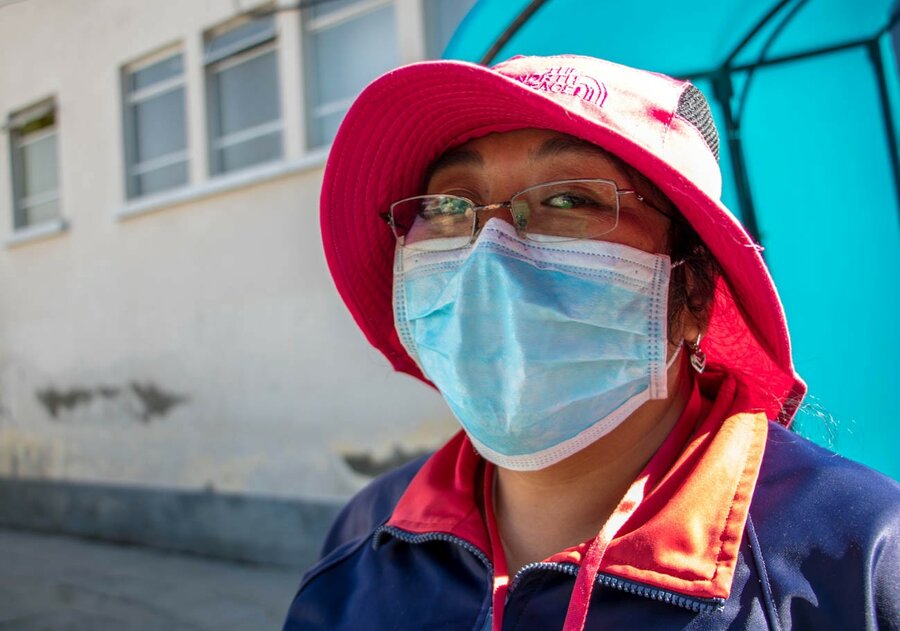
"For the past two months, I haven't been earning as much as I used to," says Vilma. Before Takesi's diagnosis, she ran a coffee shop in her father's house but had to close it down to look after her son. Now she sells magazines, cosmetic products and shoes door to door, but business is down.
"Our expenses have grown because everything is expensive. [The money I have] is enough to cover some, but we can't buy all the things we need."
With WFP's assistance, Vilma is planning to buy lentils, wheat, cereals, milk, quinoa, fresh fruit and cheese — "Takesi is like a little mouse," she says, "he eats a lot of cheese." She is also going to buy disinfectants and cleaning products. "Takesi's defences are low," she says. "That's why we have to be extra careful with cleaning. We go out as little as possible and have very strict protocols."
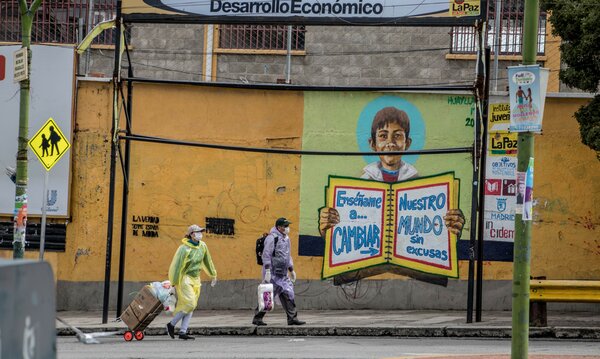
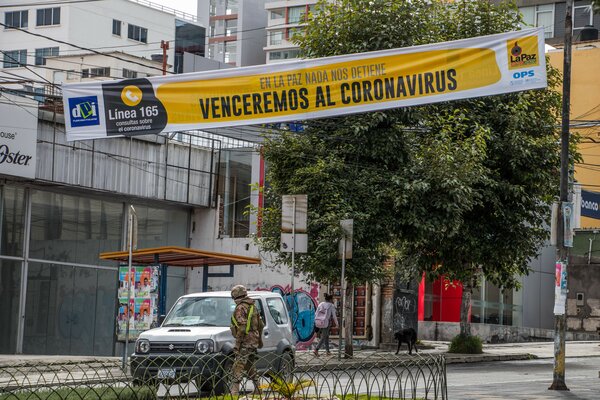
Takesi came home from hospital on 1 February when the doctors said he was not tolerating the treatment and had to be put on palliative care. "He was as frail as an eggshell when he came home," Vilma recalls. "When we went back to the hospital after a week, the doctors were surprised: before, he was in pain and could not walk. Now he's playing around like a kitten, laughing," she says. Giving him nutritious food, with lots of fresh fruit and vegetables has been an important factor in his improvement.
"No one should face the impossible choice between putting food on the table and accessing life-saving medical treatment for themselves or their loved ones," says Ana María Salhuana, Country Director from WFP Bolivia. "Many of the families we are supporting had already suffered from the economic consequences of political instability earlier this year. COVID-19 risks being the last straw for them," she adds.
As Vilma looks to the future with the optimism only a mother can muster, WFP will continue to be there to support those the coronavirus is making ever more vulnerable.
